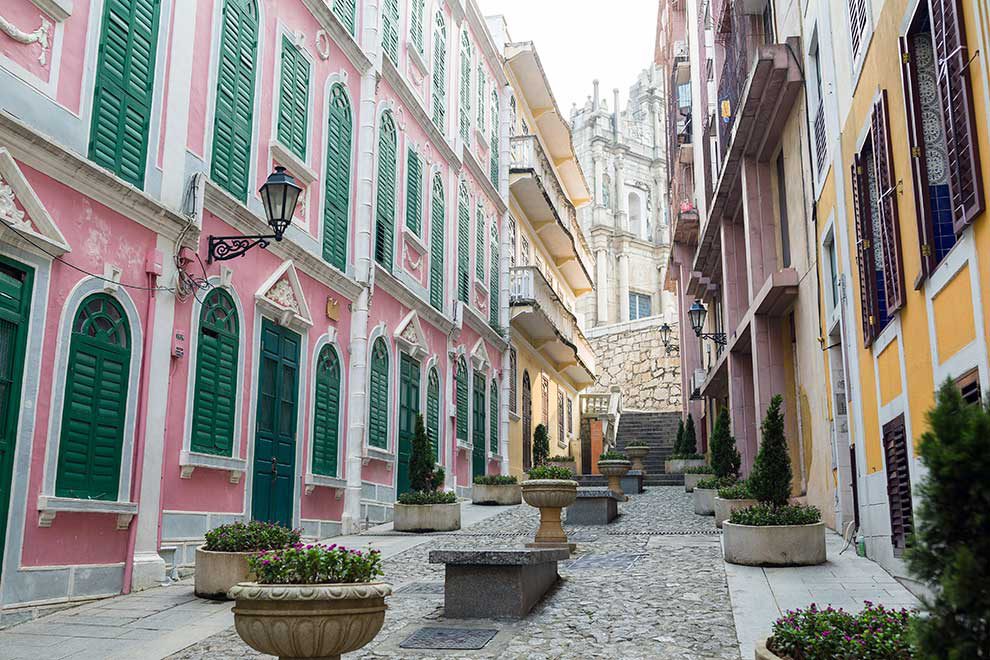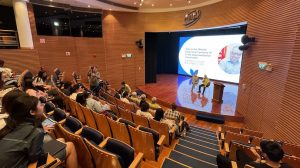The huge increase in the number of casinos in Macao since 2005 has not negatively affected the image international tourists have of the city, says a new study by 2 scholars from IFT. “There is no evidence that the increasing visibility of the Cotai casino complexes… [including] in the media, has been detrimental to the image of Macao as a heritage and culture destination,” say IFT scholars Dr. Cora Wong Un In and Dr. Qi Shanshan.
Their investigation tracked the evolution of the destination image of Macao using digital text-mining techniques to analyse comments and information about the city posted on the popular international travel website TripAdvisor.com. Information analysed included more than 8,000 reviews posted by TripAdvisor users between 2005 and 2013 in several languages, mostly in English.
The researchers concluded: “The heritage attractions hold their ground very well. Terms like ‘museum’ and ‘church’ increase in relative frequency over time” in TripAdvisor reviews of Macao. “This suggests that the new casino complexes did not negatively affect the visitors’ image of Macao as a quality cultural destination, and that the international tourists interested in heritage and culture have embraced the new non-gambling resources of the new complexes as well, as they appear to combine traditional heritage tourism with the consumption of those new leisure attractions,” Dr. Wong and Dr. Qi wrote in their study.
The number of casinos in Macao rose from 17 in 2005 to 35 in 2013, according to Government data. The first large-scale casino resort in Cotai – the Venetian Macao – opened in August 2007.
The researchers also compared the TripAdvisor reviews of Macao to the official destination image endorsed by the Macao Government Tourism Office (MGTO) between 2005 and 2013. The latter came from the MGTO press releases regarding its annual media briefing held at the beginning of each calendar year. The IFT scholars concluded that TripAdvisor reviews had significantly evolved and had become “increasingly congruent” with the official destination image championed by MGTO.
“As projected by the TripAdvisor reviews of the last 9 years, the destination image of Macao has evolved into one of an increasingly diversified destination, in spite of the huge increase in casino complex infrastructure,” Dr. Wong and Dr. Qi stated in their study. “In effect, the TripAdvisor image of Macao has over time converged to the promotional image that MGTO has consistently projected over time,” they stated.
The 2 scholars said that MGTO “consistently projected the image of a Macao of heritage, leisure and events, sanitised by overlooking its gaming industry”. The researchers underscored that the image of Macao projected by MGTO in 2005 became more realised over time in the way it appears to international visitors as reflected by the TripAdvisor reviews.
Heritage versus casinos
The research, “Tracking the evolution of a destination’s image by text-mining online reviews – the case of Macau”, was published in July in the academic journal Tourism Management Perspectives. It was the first paper of its kind to consider “the evolution of a changing destination over a significant number of years through text-mining the online reviews stored on a popular tourism social platform,” the authors noted. The Macao Science and Technology Development Fund funded the research.
“It has during the last decade become a common practice for tourists to post an account of their travel experience online,” researchers Dr. Wong and Dr. Qi wrote. They said that from 2005 to 2013 the number of TripAdvisor reviews on Macao “exploded” from “a handful” between 2005 and 2008 to more than 3,000 in 2013.
According to its parent company, TripAdvisor has so far garnered more than 535 million reviews and opinions covering more than 7 million accommodation venues, airlines, tourist attractions and restaurants worldwide. The website reportedly records on average per month approximately 415 million visitors.
“While some popular online media… tend to be used only by certain linguistic groups of online users, TripAdvisor, where reviews are mostly written in English, has users from all over the world,” the researchers noted. “It is thus reasonable to assume that it is the international tourists (i.e. not from Greater China) who post and consult the reviews found on the site.”
The 2 IFT scholars concluded that – based on the TripAdvisor reviews of Macao between 2005 and 2013 – “the links between ‘Macao’ and terms representing both the heritage sites and the non-gambling attractions in the new casino complexes become stronger and more direct over time while the opposite happens to the links between ‘Macao’ and the term ‘casino’”. They added: “While ‘casino’ is a relatively frequent term, its frequency decreases over time in spite of the increase in the number of such establishments in Macao.”
The researchers additionally pointed out that Macao is no longer regarded in TripAdvisor reviews as the “Las Vegas of the East”: the term stopped being widely used by reviewers after 2010. “This suggests that ‘the Las Vegas of the East’ is not how the international tourists see Macao today and thus not how it should be advertised to them,” the scholars stated. “MGTO has been both prescient and consistent in this respect.”
Also apparent from the TripAdvisor reviews is that older leisure attractions in Macao are losing ground to newer ones. “The new leisure activities now available in the Cotai complexes are clearly crowding out the older such activities,” the researchers noted. Attractions losing appeal to international visitors included Taipa Village and a cluster of venues located close to the Outer Harbour Ferry Terminal such as Macau Fisherman’s Wharf, the Cultural Centre and several museum facilities.
The IFT scholars also noted that the availability of shuttle bus services between border checkpoints and hotels and casinos in Macao was “unreservedly appreciated” in the TripAdvisor reviews. “This suggests that easing tourist mobility to the neglected attractions might help bring them back into the loop, which would further increase the variety of attractions actually patronised by international tourists and motivate them to [make] longer stays in the territory than is the case today.”
Looking ahead, Dr. Wong and Dr. Qi suggested a study similar to their analysis of TripAdvisor reviews on Macao be conducted using reviews on Chinese social media written in the Simplified Chinese typically used by Mandarin speakers, to “find out whether Chinese tourists’ perceptions are different from the ones of international tourists.”
More info
Dr. Qi Shanshan, an IFT Invited Assistant Professor, holds a Ph.D. degree from the Hong Kong Polytechnic University. Her research interests include computer technology applications related to tourism and tourism/hospitality website evaluations, data mining and destination marketing.
https://doi.org/10.1016/j.tmp.2017.03.009









